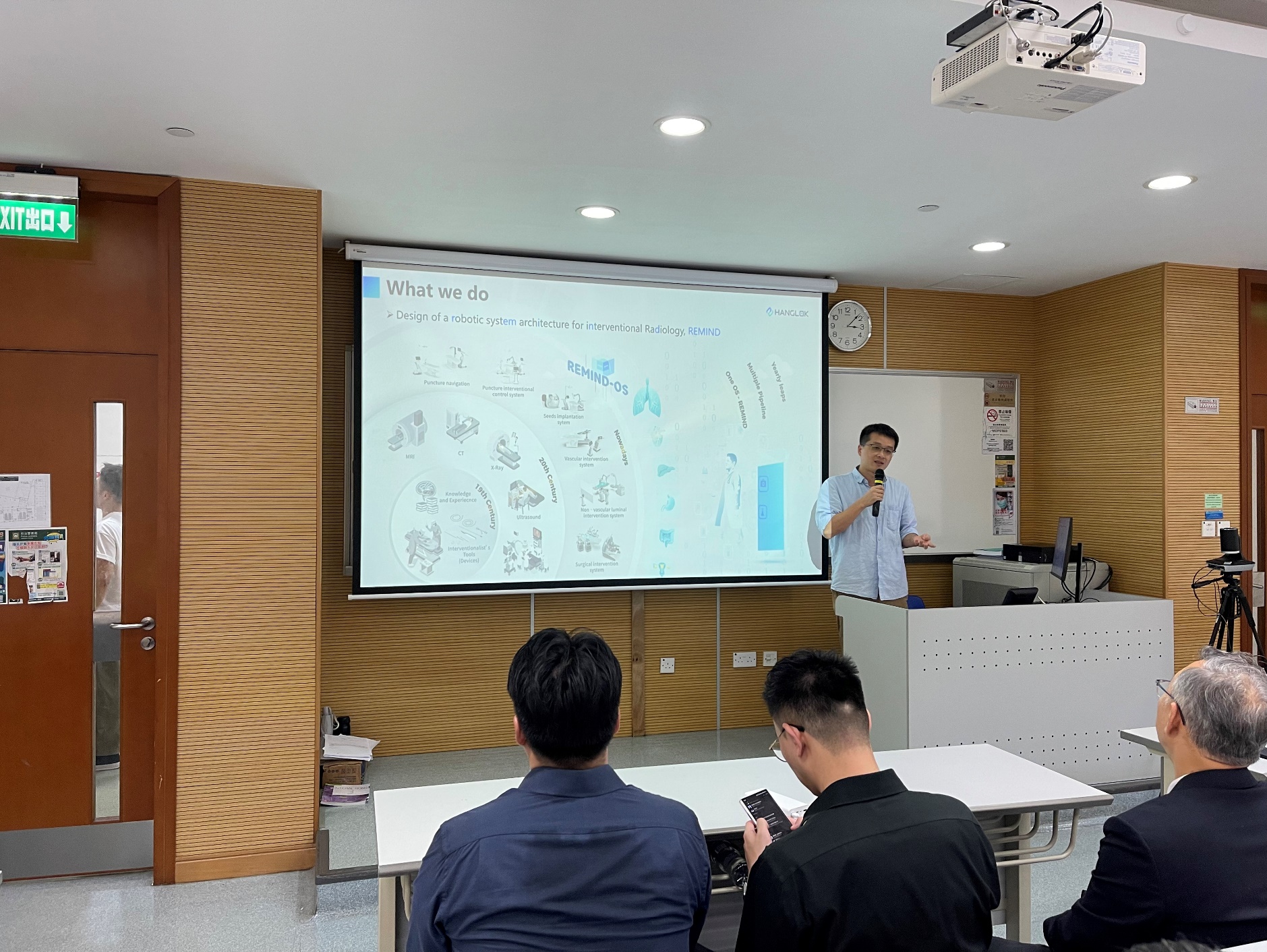Seminar on Medical Robotics and Autonomous Driving was successfully held at M.U.S.T.
Seminar on Medical Robotics and Autonomous Driving was successfully held at M.U.S.T.
On the occasion of the 24th Anniversary of Macau University of Science and Technology, the School of Computer Science and Engineering successfully held a seminar on medical robots and autonomous driving in N313 on April 17. Three industry experts and scholars were invited to give on-site lectures and research exchanges. The opening ceremony was chaired by Assistant Director of School of Computer Science and Engineering Li Jianqing, with Director Zhang Du and over 100 faculty members and students in attendance to commemorate the university's anniversary.

Mr. Wang Cheng was giving a speech
The seminar was started by Mr. Wang Cheng, who is the founder, chief technology officer and senior engineer of Zhuhai Hengle Medical Technology Co., Ltd. He is also a technical expert in Guangdong Province and a high-level talent in Zhuhai City and a member of the Professional Committee on Tactile Perception and Interaction of the Chinese Instrument and Control Society. The topic of Mr. Wang Cheng's sharing is "A multi-loop control system for puncture and interventional surgery: design, control, and multi-center clinical trials." The system is designed to solve the problems in traditional manual puncture and interventional surgery, such as insufficient puncture accuracy, steep learning curve, and challenges with safety and efficacy. Through the fusion of multi-sensor information, especially force-sensing information and real-time ultrasound information, global perception capabilities are achieved, which can overcome the impact of respiratory motion and flexible tissue on the accuracy of puncture surgery; the system has been verified through a series of rigorous physical experiments, including practical applications in phantoms, animals and multi-center clinical trials. It is shown that the system can improve the success rate of puncture interventional surgery while reducing accuracy errors, bringing great potential to percutaneous interventional cancer treatment and other fields.

Mr. Zhang Wenbo was giving a speech
The second guest speaker was Mr. Zhang Wenbo, the senior vice president of Beijing Smart Yunzhou Technology Co., Ltd. He has rich experience in digital services and has participated in the performance evaluation and acceptance of the Ministry of Commerce’s e-commerce into rural comprehensive demonstration project, focusing on the implementation of innovative video twin technology, he is committed to using video twin technology to empower application scenarios in various industries; Mr. Zhang Wenbo gave a wonderful speech titled "Video Twins, Changing Vision" to the teachers and students, in-depth discussion of relevant domestic and foreign policies and video digital twin technology, and shared application cases of video twin technology in different fields.

Assistant Professor Li Dagang was giving a speech
In the last part of the seminar, Assistant Professor Li Dagang from the School of Computer Science and Engineering of M.U.S.T. shared artificial intelligence technology in autonomous driving; discussing that autonomous driving, especially high-level autonomous driving technology, has been a hot topic in the scientific and technological circles in recent years, and the public attention remains high. In this wave of autonomous driving craze, artificial intelligence technology, as the core technology, has effectively promoted the rapid breakthrough and sustainable development of the former. Autonomous driving has also become one of the most important application fields of artificial intelligence technology. Assistant Professor Li Dagang conducted an in-depth discussion on the main application methods and important research results of artificial intelligence technology in autonomous driving, as well as the main research hotspots in this field.
This seminar extensively and deeply discussed the latest technological developments in medical robots and autonomous driving. After the seminar, the students showed great interest and actively asked questions. The guests encouraged the students to develop and try in many aspects and seize opportunities.

Group Photo of Guests




